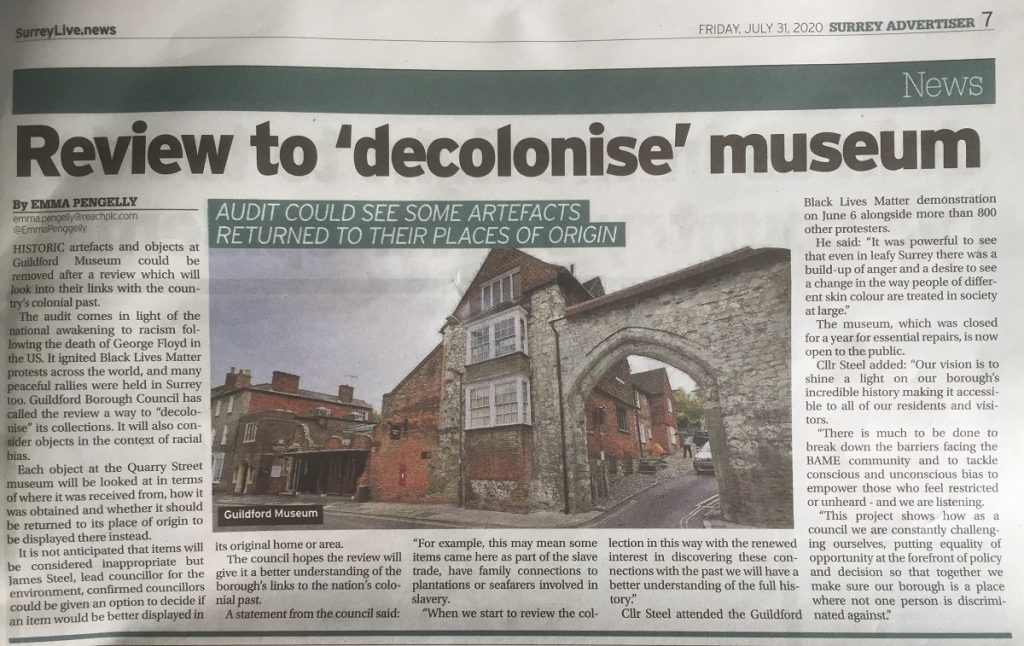The Lib Dems on Guildford Borough Council have announced a plan to decolonise Guildford museum and search out items of colonial significance. “This project” their statement runs “shows how as a council we are constantly challenging ourselves, putting equality of opportunity at the forefront of policy and decision so that together we make sure our borough is a place where not one person is discriminated against.”

But what are they actually delivering? The project will take place behind closed doors at some point during the next four years and judging from comments by former staff it will not find much.
Matthew Alexander, the town’s Honorary Remembrancer and former curator Guildford Museum, says that in 2007 for the anniversary of the abolition of slavery museum staff “explored any local connections we might have with the slave trade, and found none”. Mary Alexander, former collections officer with 30 years experience at Guildford Museum said “The 19th-century collections had a handful of objects, such as spears from New Zealand and Malaya, which were disposed of 100 years ago. In the 1980s, a few remaining ethnographic collections were transferred to more appropriate museums.” That is not to say there are not exhibits that could be used to interpret Guildford’s colonial connections. There are some items relating to the Chilworth gunpowder mills which supplied gunpowder to the colonial armies. But it will be surprising is there is anything directly relating to slavery for example.
The project is not a Lib Dem initiative either. The Museums Association and the Arts Council are heavily promoting decolonisation across the entire museum sector. The Arts Council in January 2020 announced it was producing a checklist and there may be financial repercussions for museums that ignore it.
The Council has announced it will issue a heritage strategy in the autumn. Lets hope it contains more specific information on what will actually be delivered and when.